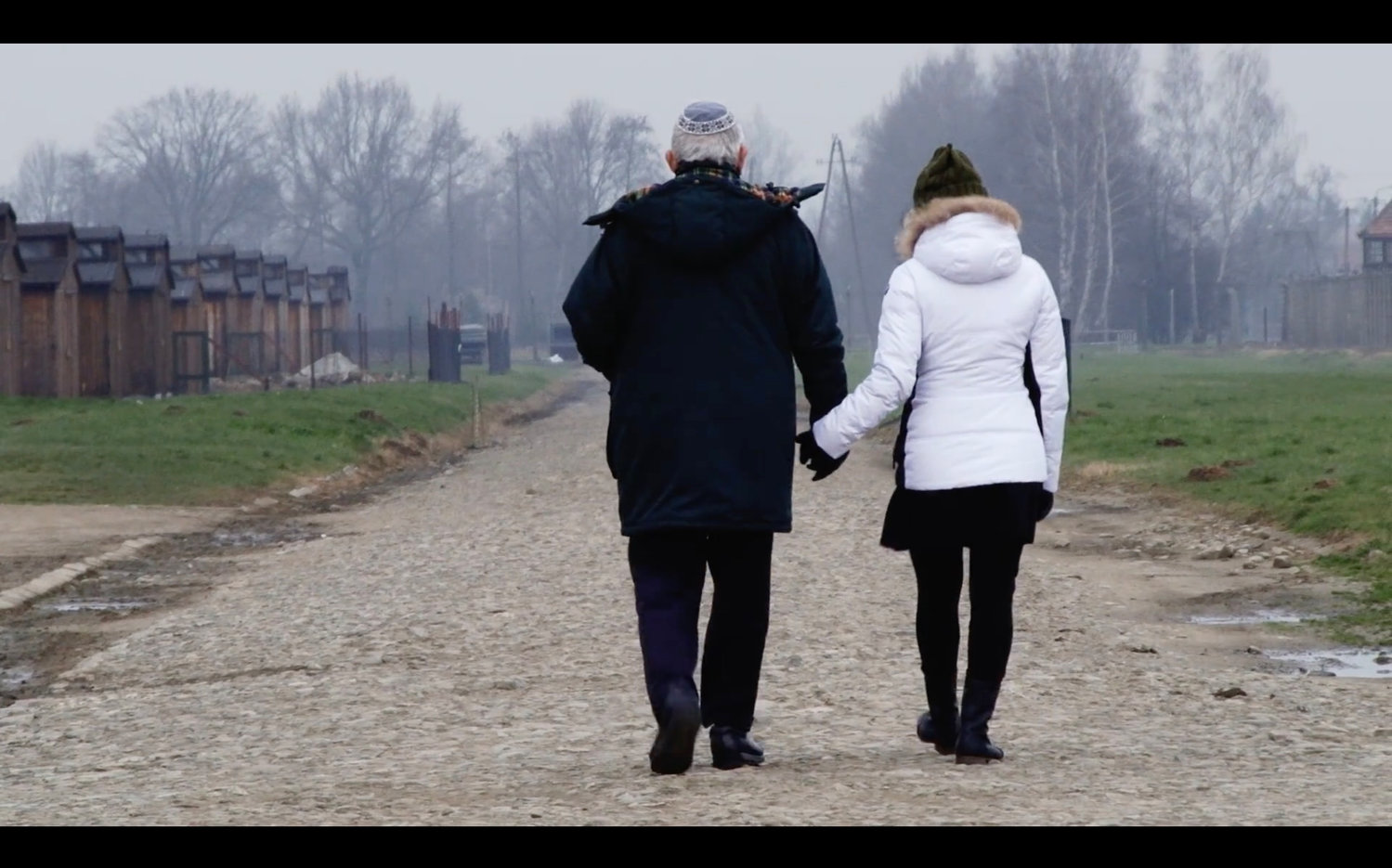North Woodmere native documents grandfather's Holocaust survivor tale in 'The Barn'
Roughly a decade ago, East Rockaway resident Pnina Knopf attended a National Council of Jewish Women health forum, and one of the speakers was Dr. Elana Kastner, an obstetrician and gynecologist with a practice in Valley Stream who is affiliated with NYU Winthrop Hospital in Mineola.
“I was so impressed with her presentation that I told her when my doctor retires I wanted to come see her,” Knopf, a past NCJW-Peninsula Section president and the Jewish Life Program chairwoman for the Lawrence-based organization, said of Kastner. Five years later, Knopf became a Kastner patient.
In January 2018, Knopf took part in the Marion & Aaron Gural JCC’s Martin Luther King Day of Service program. The program’s Kindness to a Victim of Discrimination event was a lunch with a Holocaust survivor, at which Knopf joined two Lawrence High School students and a survivor named Karl Schapiro.
“I discovered Karl Schapiro is Elana Kastner’s father when all four of us shared [stories] about our families,” Knopf said. “Karl said he [had] a daughter, Elana. I said, ‘Is her last name Kastner?’ and he and I were both stunned when I said that she is my doctor.”
At a doctor’s appointment that summer, Knopf told Kastner that she had met her father, and Kastner told Knopf that her daughter, Rachel, was working on a documentary on Schapiro, her grandfather. At an appointment the following year, Kastner told Knopf that Rachel’s film, called “The Barn,” was nearly finished.
Last October, Knopf contacted Rachel. “I watched the documentary and started an email correspondence with Rachel, which led to her agreeing to be our presenter at the NCJW-Peninsula Section’s Jewish Life Program on March 16, Knopf said.
Rachel Kastner, 24, a North Woodmere native who lives in Tel Aviv, Israel, had been part of a similar coincidence as a high school senior at the Ramaz School in Manhattan.
The school was planning its annual senior class trip to Poland to learn about the Holocaust and World War II. Rachel’s parents asked school officials if they could arrange for students to meet a “righteous gentile,” a non-Jew who had risked his or her life to save Jews during the Holocaust. The school, as was its custom, had already done so.
“It was a coincidence that Ramaz had been meeting with Paulina Plaksej for over a decade on this trip — the very same woman who saved my grandfather and his parents,” Rachel wrote in an email. “I had the privilege to meet her and share in that moment with my classmates and friends. It was a very moving experience.”
Three of her grandparents were Holocaust survivors, and Rachel has known her grandfather’s story since she was young. In 1943, Schapiro, then age 9, his parents and 15 other Jews hid in an underground bunker inside a barn in Kalusz, Poland, now part of Ukraine, for two years. After being liberated, the Schapiros spent time in displaced-person camps in Germany before coming to the U.S. in 1948.
“Paulina [Plaksej] and her parents were friendly with my grandfather’s family,” Rachel recounted. “They wanted to help save them, and inquired about who had a hiding spot. They found the bunker, and paid a farmer to hide my grandfather and his parents. Plaksej, then 16, specifically traveled between towns, inconspicuously, to bring food, medicine, clothing or anything else they needed.”
Rachel was so moved by her high school experience that she wanted to return to record Paulina’s story, and Plaksej appears in the documentary. She died in 2018, at 93.
While attending the Ramaz School, Rachel had also met Nancy Spielberg, one of the director Steven Spielberg’s three sisters, at an American Israel Public Affairs Committee conference, at which Rachel watched Nancy’s 2014 documentary “Above and Beyond.”
“[I] was incredibly inspired by her and her work,” Rachel continued in her email. “I excitedly approached her afterwards with some questions about the film, [and] told her I intended on making documentaries and films in the future.” Nancy gave Rachel a business card, and roughly 10 years later, when she was working on “The Barn,” Rachel called her for advice on making a documentary.
Her Ramaz connections led her to Matthew Hiltzik, who produced “Paper Clips,” a 2014 movie that focused on teaching young non-Jews about the Holocaust. Hiltzik brought on director Phil Berger to direct “The Barn.”
“In terms of these so-called coincidences — truthfully these opportunities are always there if we only open up our eyes to them,” Elana Kastner said. “I choose not to see these things as coincidences. We all have the ability to perceive how interconnected our lives are, perhaps even to feel a divine presence in our lives as we recognize and appreciate these ‘coincidences.’”
Though he was hesitant to return to a place where he lived essentially as a prisoner, Schapiro said he was glad that he and his granddaughter went back. “It has value, and will protect and preserve the story for generations to come,” he said of Rachel’s documentary.
The National Council of Jewish Women-Peninsula Section is hosting a virtual program on March 16, at 10 a.m. that will feature Rachel, who now produces podcasts, showing and discussing “The Barn.”
The deadline to register for the program is March 9, and the fee is $10 for members and $15 for nonmembers. Go to https://www.ncjwpeninsula.org/ and scroll down to upcoming events. Or mail a check payable to NCJW Peninsula Section to NCJW Peninsula Section, 342 Central Ave., Lawrence, N.Y. 11559 (include email address). A Zoom link will be sent on March 15.

 49.0°,
Fair
49.0°,
Fair 




